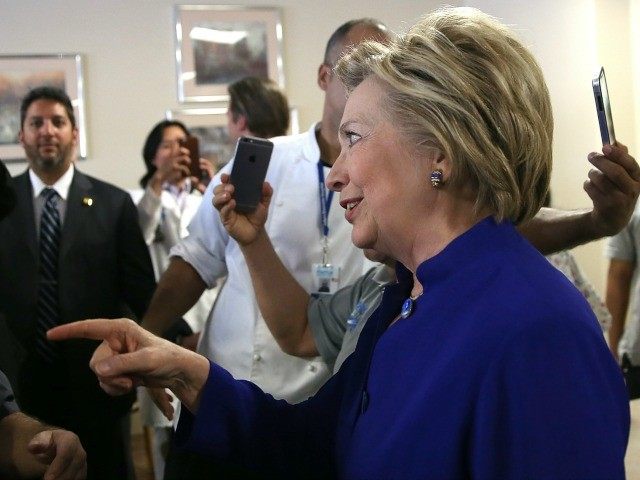Revelations in the Panama Papers that key Clinton financial partners had numerous offshore entities is the latest investigation to expose the secretive Clinton Global Financial Network.
That network, which includes controversial financiers and foreign entities, has operated with the infusion of funds from offshore accounts and entities around the world. And there are more revelations to come.
As the Panama Papers reveal, major Clinton financial partners, including Canadian mining magnate Frank Giustra and the Chagoury family of Nigeria, made use of the controversial Panamian law firm Mossack Fonseca to move assets around the world. Giustra is one of the largest contributors to the Clinton Foundation, donating more than $25 million. The Chagoury’s of Nigeria have committed $1 billion to the Clinton Global Initiative
Several key figures in the uranium deal that sent 20 percent of American uranium production into the hands of the Russian government had offshore entities created by Mossack Fonseca. Frank Giustra used the firm to create UrAsia Energy, the company that acquired lucrative uranium concessions in Kazakhstan with the help of Bill Clinton back in 2005. UrAsia Energy eventually became Uranium One, which acquired uranium assets in the United States and then was sold to the Russian State Nuclear Agency (ROSATOM) in 2010.
Because of the obvious national security implications of turning over control of large quantities of uranium to the Russian government, the deal required approval from Hillary Clinton’s State Department before it could go forward. Nine shareholders in Uranium One sent a combined $145 million to the Clinton Foundation. Some of those contributions were not disclosed by the Clinton Foundation. Uranium One Chairman Ian Telfer sent the Clinton Foundation more than $2 million. Those contributions were revealed first in Clinton Cash and discovered using Canadian tax records.
Sergei Kurzin, a Russian mining investor who was also involved in the Uranium One deal, also used Mossack Fonseca. Kurzin’s name appears on several oil companies set up by the firm. Kurzin says he donated $1 million to the Clinton Foundation.
Mossack Fonseca helped Nigeria’s Ronald Chagoury set up a firm called Echo Art Ltd. which was domiciled in the British Virgin Islands.
This is not the first time that offshore accounts that figure into the Clinton’s Global Financial Network have been exposed. Two years ago a Swiss whistleblower released the names of the super-rich who held Swiss accounts via the bank HSBC. As an earlier investigation by the International Consortium of Investigative Journalists revealed, up to $81 million has flowed to the Clinton Foundation via Swiss accounts. As the investigation revealed, Swiss accounts were held by numerous Clinton donors.
Jeffrey Epstein, the controversial financier and convicted sex offender, held money in a HSBC Swiss account. He contributed $25,000 to the Clinton Foundation.
British retail magnate Richard Caring gave the Clinton Foundation $1 million from his HSBC Swiss account in 2005. He made the donation shortly after Bill Clinton attended his charity ball dressed as a Russian General.
Frank Giustra held an account at HSBC, valued at up to $10 million in 2006-2007. His first contributions to the Clinton Foundation were in 2005.
American entrepreneur Eli Broad held accounts at HSBC. He is a $1 million plus contributor to the Clinton Foundation.
Denise Rich is the ex-wife of financier and one-time international fugitive Marc Rich, who was pardoned by President Bill Clinton on his last day in office. Rich has contributed up to $500,000 to the Clinton Foundation.
Maintaining bank accounts in Switzerland or creating offshore corporate entities are not illegal. Representatives for Giustra and others insist that they comply with tax laws. But it is hard to escape the fact that firms such as Fonseca advertise their services as a means to minimize tax burdens and keep assets hidden.
On the campaign trail, Hillary Clinton has condemned what she calls “outrageous tax havens and loopholes that super-rich people across the world are exploiting.” She has also promised to shut down the “private tax system for the wealthy.”
Look for more to come out on the Clinton Global Financial Network in the months ahead.

COMMENTS
Please let us know if you're having issues with commenting.